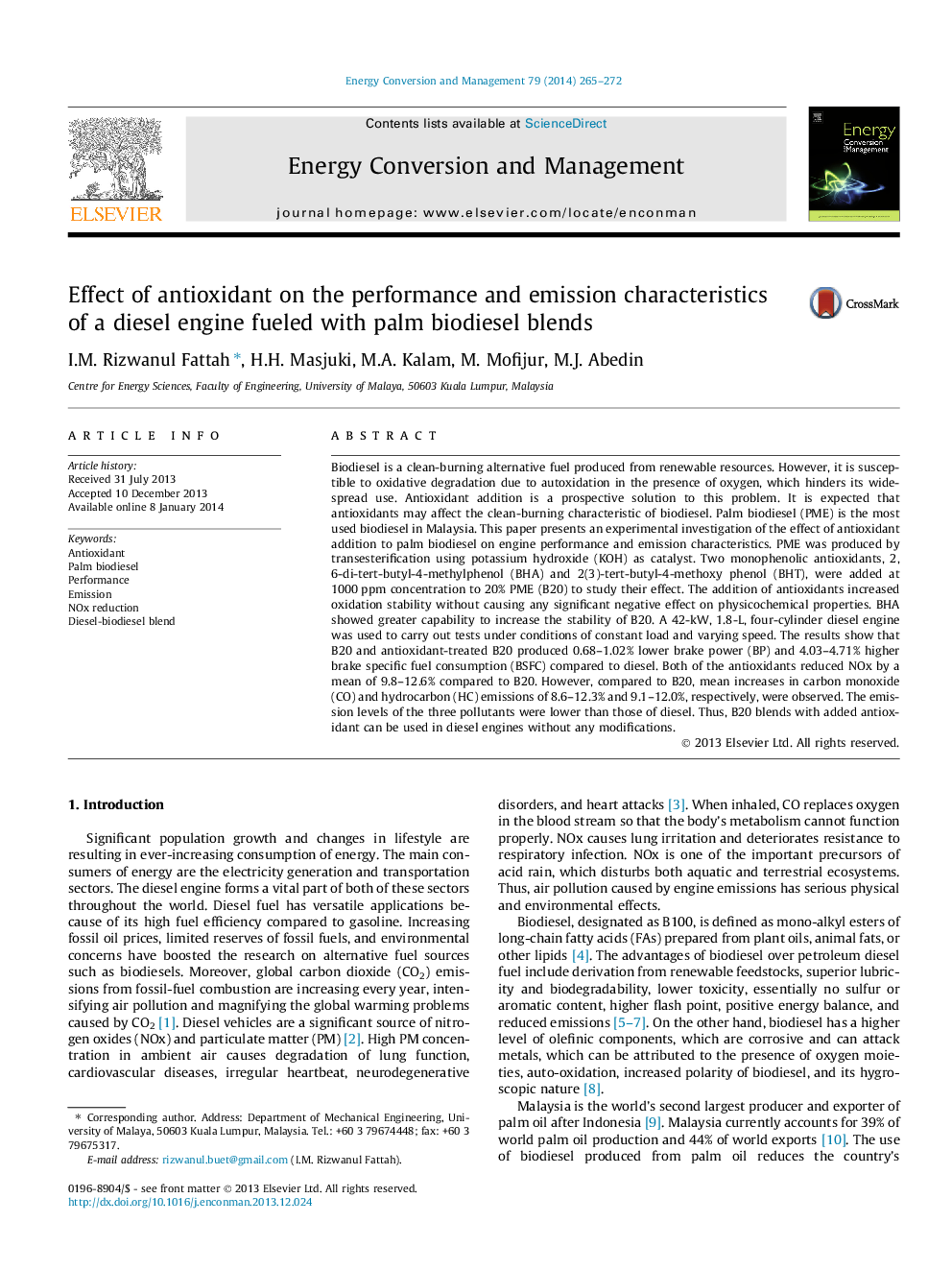| کد مقاله | کد نشریه | سال انتشار | مقاله انگلیسی | نسخه تمام متن |
|---|---|---|---|---|
| 771969 | 1462883 | 2014 | 8 صفحه PDF | دانلود رایگان |
• Effect of antioxidant treatment on 20% PME in diesel on fuel properties were studied.
• Effect on engine performance and emission was enumerated in a turbocharged diesel engine.
• Stabilized blends produced 0.3–0.6% higher avg. BP and 0.18–0.64% lower avg. BSFC compared to B20.
• Stabilized blends reduced about 9.8–12.6% avg. NOx compared to non-stabilized B20.
Biodiesel is a clean-burning alternative fuel produced from renewable resources. However, it is susceptible to oxidative degradation due to autoxidation in the presence of oxygen, which hinders its widespread use. Antioxidant addition is a prospective solution to this problem. It is expected that antioxidants may affect the clean-burning characteristic of biodiesel. Palm biodiesel (PME) is the most used biodiesel in Malaysia. This paper presents an experimental investigation of the effect of antioxidant addition to palm biodiesel on engine performance and emission characteristics. PME was produced by transesterification using potassium hydroxide (KOH) as catalyst. Two monophenolic antioxidants, 2,6-di-tert-butyl-4-methylphenol (BHA) and 2(3)-tert-butyl-4-methoxy phenol (BHT), were added at 1000 ppm concentration to 20% PME (B20) to study their effect. The addition of antioxidants increased oxidation stability without causing any significant negative effect on physicochemical properties. BHA showed greater capability to increase the stability of B20. A 42-kW, 1.8-L, four-cylinder diesel engine was used to carry out tests under conditions of constant load and varying speed. The results show that B20 and antioxidant-treated B20 produced 0.68–1.02% lower brake power (BP) and 4.03–4.71% higher brake specific fuel consumption (BSFC) compared to diesel. Both of the antioxidants reduced NOx by a mean of 9.8–12.6% compared to B20. However, compared to B20, mean increases in carbon monoxide (CO) and hydrocarbon (HC) emissions of 8.6–12.3% and 9.1–12.0%, respectively, were observed. The emission levels of the three pollutants were lower than those of diesel. Thus, B20 blends with added antioxidant can be used in diesel engines without any modifications.
Journal: Energy Conversion and Management - Volume 79, March 2014, Pages 265–272
